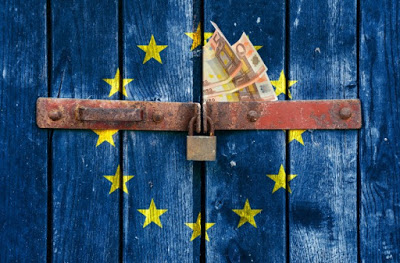
The eurozone appears to be in rare form. The political threat that seemed so palpable at the start of the year has faded. Not only have the populist-nationalists been turned back at every opportunity, but polls suggest the new French President can secure a parliamentary majority in upcoming elections. Â
The regional economy continues to expand at a stable clip around 0.4% a quarter, which may be a little above trend. The composite PMI reported earlier today unchanged at 56.8 in May is above the 55.6 average of Q1 17, the 53.9 average in Q4 16 and the 53.3 average for all of last year.
The ECB meets later this week. It is widely expected to take a small step toward the eventual end of its extraordinary monetary policy shepherded by Draghi, who was once referred to as the Prussian Roman. Most likely, the step will involve some moderation of its forward guidance. In September, it is expected to announce its intentions to scale back its purchases from the current pace of 60 bln a month and extended them into the first part of next year. Â
The ECB is challenged, as are many major central banks, with softer than desired inflation. The drop in the price of oil, the strengthening of the euro, and unwind of the effect of Easter and poor weather are conspiring to push headline and core inflation lower after a recent spike. This alone keeps the majority of the ECB reluctant change policy. Recall in 2008 and 2011 the ECB tightened monetary policy prematurely. The ECB cannot afford to make the same mistake in 2017. Â
The eurozone faces two imminent challenges. First, Greece’s debt situation is unresolved insofar as the European proposal to extend some maturities does not satisfy the IMF, which has argued for greater debt relief. Without a significant move, European officials risk delaying when Greece can fund itself in the capital markets.Â

